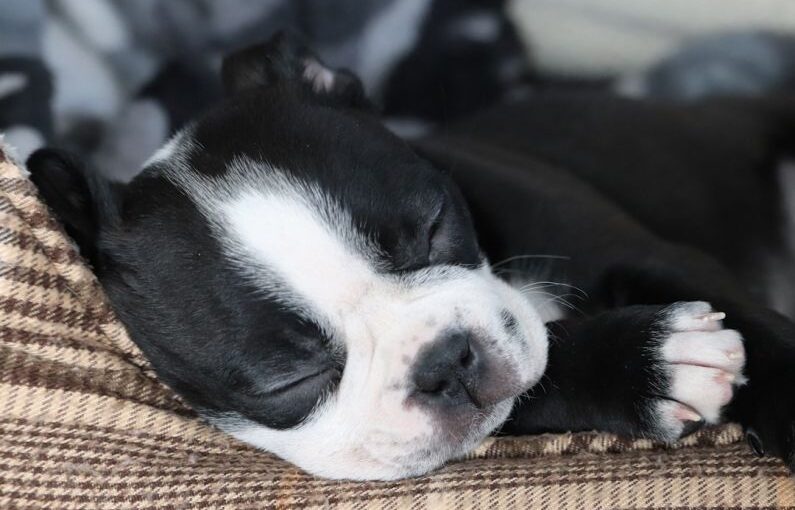Puppies are undeniably adorable creatures that bring joy and excitement into our lives. As pet owners, it is important to understand the various aspects of their care, including their sleep patterns. Just like human babies, puppies require plenty of rest to grow and develop properly. In this article, we will delve into the intriguing world of puppy sleep patterns and explore the reasons behind their seemingly erratic behavior when it comes to snoozing.
### The Importance of Sleep for Puppies
Sleep plays a crucial role in the overall health and well-being of puppies. It is during this time that their bodies have the opportunity to rest, recharge, and grow. Adequate sleep is essential for proper brain development, immune function, and overall growth. Puppies, especially younger ones, need significantly more sleep than adult dogs. On average, a puppy can sleep anywhere from 18 to 20 hours a day. This may seem like a lot, but it is completely normal and necessary for their development.
### Puppy Sleep Cycles
Understanding puppy sleep cycles can help pet owners better navigate their furry friend’s behavior. Puppies, like adult dogs, go through different stages of sleep, including light sleep, deep sleep, and REM (rapid eye movement) sleep. During the light sleep stage, puppies may twitch, whimper, or move around as they transition into deeper sleep. Deep sleep is when they are most relaxed and least likely to be disturbed. REM sleep is where dreaming occurs, and you may notice their eyes moving rapidly under their eyelids.
### Factors Affecting Puppy Sleep
Several factors can influence a puppy’s sleep patterns. One of the main factors is age. Younger puppies require more sleep than older puppies as they are still growing and developing at a rapid pace. Another factor is breed. Certain breeds may have different sleep requirements based on their energy levels and size. Additionally, a puppy’s environment can impact their sleep patterns. A comfortable and safe sleeping area free from distractions can help promote better sleep for your furry companion.
### Napping vs. Nighttime Sleep
Puppies tend to take frequent naps throughout the day in addition to their nighttime sleep. These short naps help them recharge and prevent them from becoming overtired. It is essential to provide your puppy with a cozy and quiet space where they can nap undisturbed. When it comes to nighttime sleep, puppies may initially struggle to settle down and may whine or cry. It is important for pet owners to establish a bedtime routine to help their puppy relax and feel secure before bedtime.
### How to Support Healthy Sleep Habits in Puppies
As pet owners, there are several ways you can support healthy sleep habits in your puppy. Providing a comfortable and cozy bed in a quiet area of your home can help create a conducive sleep environment for your furry friend. Establishing a routine for bedtime and naps can also help regulate your puppy’s sleep patterns. Additionally, ensuring your puppy gets enough exercise and mental stimulation during the day can help them sleep more soundly at night.
### Conclusion: Nurturing Your Puppy’s Sleep
Understanding your puppy’s sleep patterns is essential for their overall health and well-being. By creating a conducive sleep environment, establishing a routine, and providing ample opportunities for rest, you can help your puppy develop healthy sleep habits that will benefit them throughout their lives. Remember, each puppy is unique, so it is important to observe your furry friend’s behavior and adjust their sleep routine accordingly. With love, patience, and a little understanding, you can ensure that your puppy gets the rest they need to thrive.





